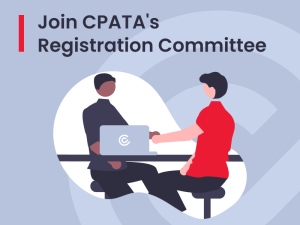Important work has already begun on CPATA’s competency initiative, a multi-year project to develop and implement technical and professional competency frameworks for agents. Broadly speaking, competency frameworks describe what an agent needs to be able to do in order to serve their clients’ best interests (this can include both technical knowledge and professional skills). This project, drawing an investment of hundreds of thousands of dollars and spanning several years, was enthusiastically approved by CPATA’s Board of Directors on March 3, 2022.
The competency initiative will first address the development of technical and professional competency frameworks for agents, set to be finalized by the end of 2022. Starting in 2023, CPATA will turn its attention to the development of a new and enhanced qualifying examination system that is psychometrically defensible while minimizing barriers to entry in the profession. Finally, we will establish a continuing professional development program for ongoing learning and continuing competence throughout an agent’s career.
“IPIC applauds CPATA’s important competency initiative to help standardize qualifications as a step towards a modern, vibrant and sustainable profession. CPATA’s initiative will ensure continued trust and confidence in the Canadian patent and trademark agent profession. IPIC remains committed to assist CPATA in responding to their mandate by providing continuing education and other educational opportunities for licensees to stay at the cutting edge of recent developments in IP practice.”
Louis-Pierre Gravelle,
IPIC President
The first phase of this project began earlier this year, when CPATA recruited patent agents and trademark agents to participate in working groups facilitated by an assessment consultant Principal at Principia Assessments Ltd. CPATA’s priority is to have groups that represent the diversity of the profession and include perspectives that have been historically excluded. Some dimensions considered included: language, gender, practice location, practice context, practice areas/industries, backgrounds/career paths, and time in practice. These subject matter expert groups have started the work of drafting the bilingual technical competency profiles and performance criteria for agents which will be the foundation for subsequent phases of this project.
For more information about CPATA’s competency initiative, please contact Jennifer Slabodkin, Director of Registration and Education, Deputy Registrar at registration-inscription@cpata-cabamc.ca.






